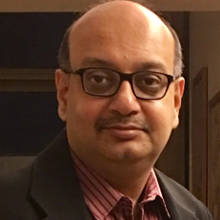The last four-five years have seen a growing phenomenon—the shift to ultra or hyper nationalism. Whether it is the yellow jersey movement in France, Germany, Brexit, the rural - urban divide in Europe, Ukraine, Brazil, the US, and of course India.
Sundeep Waslekar, president of Strategic Foresight, talks about the unseen currents behind this shift.
“Underlying this is a combination of factors. One is the growing inequity,” Waslekar says. “Economic progress in the last 500 years has been driven by science and technology. But earlier, technology made life easier and created new kinds of jobs…. But the growth that’s taking place now is reducing jobs.”
As a result, in many parts of the world, people are seeing that their life is not better than their parents’ life. People feel a sense of loss and want to go back to their father’s time.
“People are looking for answers in the cultural, sociological field, whereas one of the key problems is in the technological arena,” he says.
In 2019, almost half of the democratic world is going for elections. More than 2.2 billion people will be voting this year. Their voting pattern will reveal which way people are leaning. Though electoral politics isn’t the best way to understand this phenomena, the results will be an important indicator of whether the phenomena will sustain.
Waslekar surmises that we might have a divided verdict in the elections in India and the European parliament. In 2019, the clear ascendency of ultra-nationalistic forces will give way to divided electoral verdicts—and that is likely to place some restraints and checks and balances.
“2019 will be a point of junction in most countries around the world,” he says.



Sunil Malhotra on Mar 24, 2019 10:00 a.m. said
Very interesting that we're talking about culture and societal issues instead of technologies that are taking over most of the heavy lifting today. Also, great point about nostalgia to regain past glory ... Sharp point about the upper middle class intelligentsia completely missing the point.
Debashis Bhattacharya on Mar 22, 2019 12:27 p.m. said
Interesting perspective and probably true but as he says there are no right answers. The problem is lack of proper leadership and as the Brexit fiasco has brought out, the ‘perils’ of democracy.
Isn’t it ridiculous that we have a whole parliament and we live in the world of consensus but we still blame Teresa May for the whole problem.
I’m not sure that ultra-nationalism will actually last and nostalgia will be permanent. Especially some events like the fall of ISIS, “Brexit” and the country being held to ransom by the Trump administration will have far reaching effects.
Personally I think that this podcast must not be a one-off. Sandeep must be brought back in another six months for a review. And finally I’m a little surprised that he left out Erdogan and Turkey. It’s a very complex situation which could be an interesting indicator